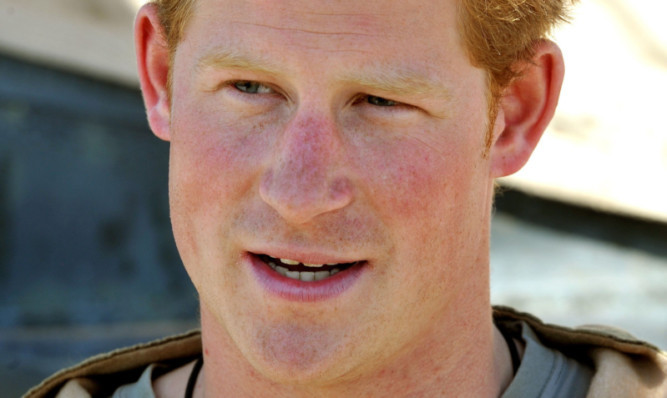A group of wounded service personnel who will attempt to race across the South Pole have undergone vital medical checks ahead of their expedition.
The six adventurers, who are part of Walking With The Wounded (WWTW), are expected to be joined by the charity’s patron Prince Harry when they embark on the journey in November.
The team of six will eventually be whittled down to four who will race against similar groups from the US and around the Commonwealth to reach the Pole.
As part of their preparations, the five amputees and a serving soldier with post-traumatic stress disorder (PTSD) have undergone a medical screening at the Institute of Naval Medicine (INM) in Gosport, Hampshire.
Ed Parker, co-founder of WWTW, said the announcement from Harry, made as he came back from Afghanistan, was a huge morale boost.
He said: “As the patron of the charity, Prince Harry has been able to give us a huge amount of support, and to hear he is hoping he can come along is fantastic news.
“I know he is very keen to come out with us.”
The team attended INM in Gosport for medical and physiological screening to help them develop a bespoke training package for the expedition.
Each team member had their height, weight, lean muscle mass, fat mass and skin fold thickness measured. They also underwent an assessment of lower back strength and oxygen consumption.
Dr Dan Roiz-De-Sa, INM’s chief medical officer of environmental medicine and science and who will be joining the group as team doctor, said: “The reason for these tests is that lower limb amputees use a significant amount of extra energy and a greater percentage of oxygen consumption during walking compared to non-injured individuals.
“We wanted to identify those where this was significantly greater to help guide their future training for the expedition.”
Corporal Jason Wilkes, of the Royal Engineers, has suffered PTSD following a suicide bomb attack on his patrol in Basra in 2006 and a subsequent attack in 2009.
The father of a four-month-old son said: “I really want to help lift the stigma of PTSD. I hope that people look at me, hear my story, and seek help.
“Although I don’t think I can be cured, I am learning how to cope and I have my own way of working through my thoughts – I am looking forward to the challenge of this trek and being with a close, tight-knit team.”
Captain Ibrar ‘Ibi’ Ali, of the Yorkshire Regiment, lost his right arm from below the elbow in Iraq in 2007 when his vehicle patrol was targeted by a roadside bomb.
Ibi was awarded the Military Cross for continuing to command his devastated patrol during a grim two-hour wait for an air evacuation in Basra.
He said: “The biggest thing I have had to learn is leaving my pride at the door.
“I can’t tie my shoelaces any more and would find it hard to tie down a tent for example so I have adapted to that and have my own coping mechanisms, as does everyone here.
“We just need to learn how to help each other out in what is ultimately going to be a massive endurance test for all of us.”
The team will be setting off for the South Pole in November for a four-week trek during which they will travel a total of 335km while pulling 70kg sledges or pulks.
The money raised from the trek will go towards helping wounded servicemen and women for careers outside the military.
